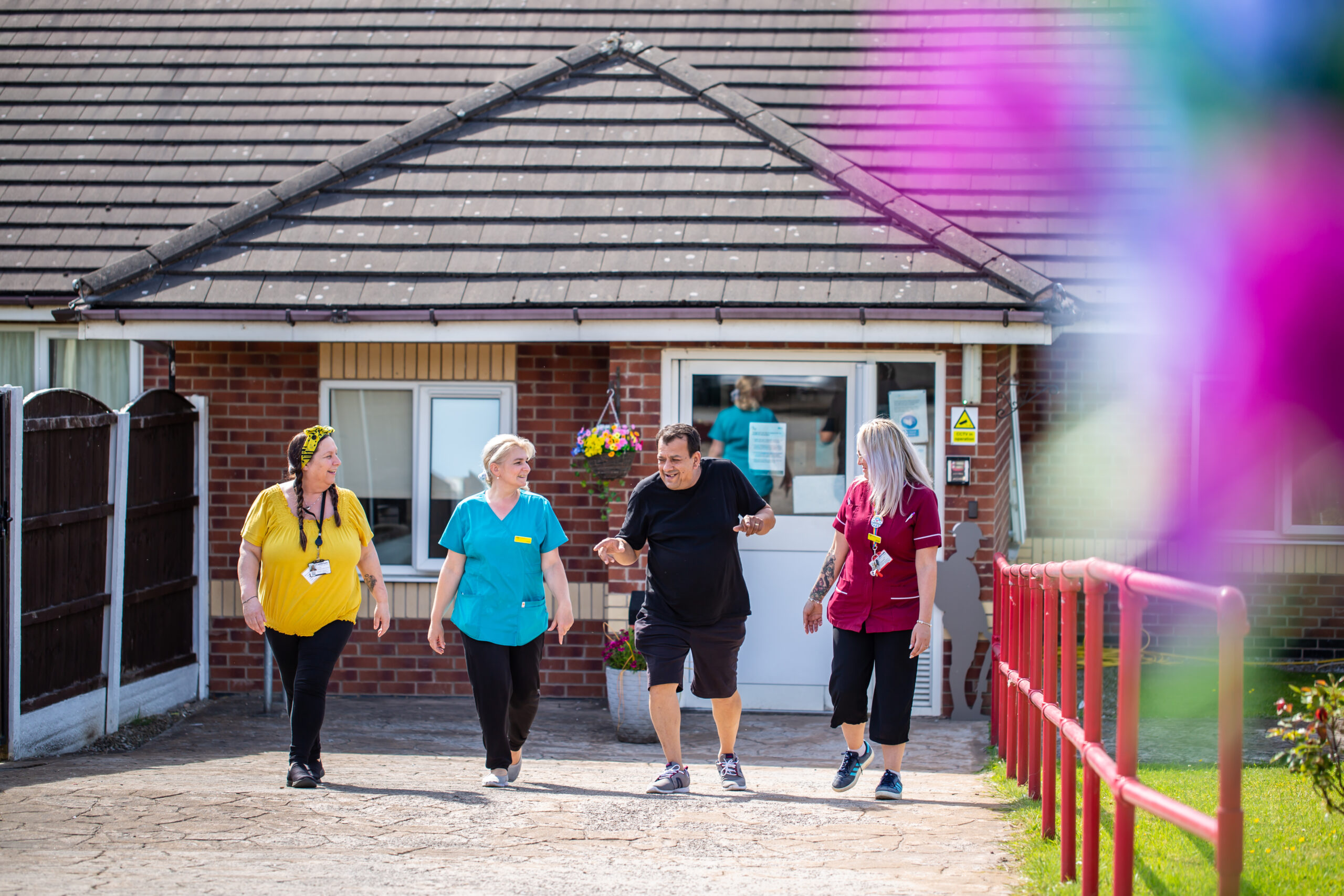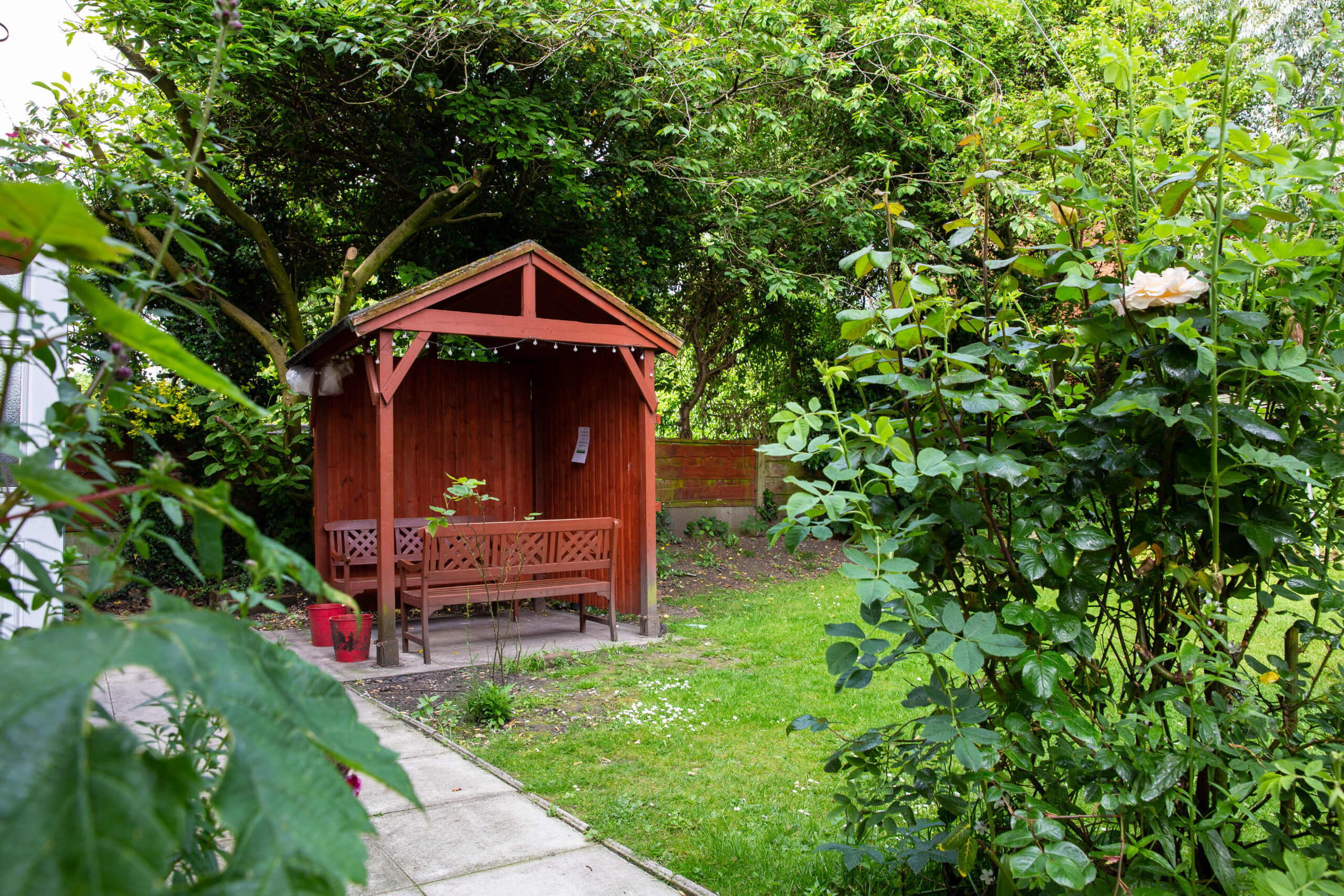Choosing a care home for your loved one is a huge, and often daunting, decision. There are a lot of considerations to make including what type of care your loved one needs, what your budget is, and the care home’s location.
At Equilibrium Healthcare, we offer several human-rights based healthcare services in and around Manchester, and our service users live with a variety of physical and mental disorders that impact their ability to live in their local communities. We know that placing your loved one in a care home can be a tough decision, which is why we are here to help you choose a care home that suits the needs of your loved one as well as yourselves.
What types of care home are there?
There are many specialised care facilities and services across the UK offering bespoke care to those who need it. The first task you have is deciding what type of care home is going to meet the needs of your loved one.
In short, there are three main types of care home:
- Nursing – this type of home provides around the clock care to those who need
- Residential – this type of home provides residents with support with their day-to-day living and care
- Dementia – this type of home is designed to support people living with Alzheimer’s and Dementia.
When trying to decide on a type of nursing home, there are a few questions you can ask yourself or your loved one:
- Do they need support with daily tasks such as dressing themselves, bathing, or eating? If the answer is yes, a residential care home is likely the best option for you
- Do they have a medical condition – physical or mental – that is hindering their ability to live within the community? If the answer is yes, a nursing home would be suitable
- Do they have dementia and need specialist support? In this case, a Dementia home is the right choice.
If you are unsure of the answer to any of the questions above, consider asking your GP or local authority and they will be able to provide you with guidance and support.

What to consider
Location
One of the most important factors to consider when choosing a care home is the location. When selecting a care home for your loved one, you will likely want the location to be close to your family and friends. Take a look around your local area and find out what facilities they can offer that suit your needs. In the rare case that you cannot find a care home close to home, consider a location which is easily commutable for your family members and your friends.
Budget
In the current financial climate, the cost of a care home is likely the most pertinent question on your mind. Care homes can be expensive, and understanding the fees involved in care home residency can be confusing and overwhelming.
The easiest way to tackle your care home search is by setting yourself a strict budget beforehand, to ensure you find an option that is affordable for you and your family. Care home costs can be broken down like this:
- Rent
- Food
- Laundry
- Utility Bills
- Medical Costs
- Labour Costs
Depending on the level of support your loved one needs, the cost can vary massively – and this can be a daunting thing. When you have shortlisted a few care homes that are within your budget and provide the level of care needed, you will then have a meeting with the care home manager who will assess your loved one’s needs to ensure that their service is the right one for you. They will also run through the costs before a final fee is confirmed.
If you cannot afford any of the options you have found, you can speak to your local authority and they may be able to offer you additional financial support.
Reviews and Ratings

One of the most crucial steps in choosing a care home for your loved one is ensuring they have positive reviews and ratings. The CQC (Care Quality Commission) is the health and social care regulator in the UK. They will inspect care homes regularly and rate their facilities. Ideally, you will always want to look out for care homes that have a rating of ‘Good’ or ‘Outstanding’.
As well as looking at the CQC ratings, it is also important to research real service users and their families to get an inside look at their experiences. Often, the most valuable insight you can get into the quality of a care home is from the users themselves.
Staff
Before you make a final decision on a care home, it is always a good idea to visit. Meeting with management and staff at your chosen care home will allow you to assess the type of people who will be potentially caring for your loved one.
Don’t be afraid to ask questions when you visit a care home, after all, you need to make an informed decision. Get a feel for their personalities, and make sure that they are people you can trust and get along with. When you have a family member in care, you’ll spend a lot of time talking to the staff, so it is crucial that you get along and act as a team.

Facilities and Activities
Every care home is different. Some will have simple accommodation and facilities on a budget, and some will include fun communal areas, gardens, and entertainment spaces for residents to enjoy. Take a tour around the care home and see what kind of facilities they offer for your loved one. It is important, particularly in dementia and mental health cases, that your loved one has access to stimulating activities throughout the week to keep their mind and body active.
Food is also an important factor in care home life. Ask about the menu your care home provides and ensure that their food choices are nutritious, diverse, and comforting. For example, at our Moston Grange service we have an amazing set of chefs – one of which is a Michelin star chef – to provide the best possible dining experience for our service users.
Choosing the right care home for your loved one can be a daunting task, but we hope that this article has provided you with some insight into what you should consider when making your decision.

